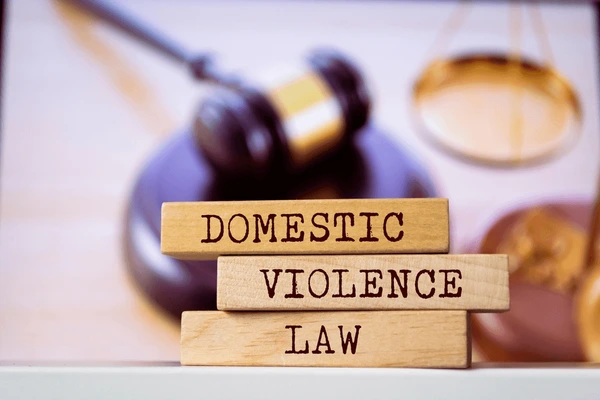Can Domestic Violence Charges Be Dropped? What You Need to Know
Table of Contents
- Introduction
- What Are Domestic Violence Charges?
- Common Misconceptions About Domestic Violence Cases
- Who Decides Whether Charges Can Be Dropped?
- 5 Common Questions About Dropping Domestic Violence Charges
- 5.1 Can I Drop Domestic Violence Charges as a Victim?
- 5.2 Will the Case End if the Alleged Victim Recants?
- 5.3 How Does a “No-Contact” Order Affect Dropping Charges?
- 5.4 What If the Accused Has No Prior Criminal History?
- 5.5 Do I Need an Attorney to Seek Dismissal?
- Potential Defenses in Domestic Violence Cases
- The Impact of Recanting or Withdrawing Statements
- Legal Procedures for Dropping or Reducing Charges
- The Role of Evidence and Witness Testimony
- What to Do If You’re Facing Domestic Violence Charges
- Long-Term Consequences of a Domestic Violence Conviction
- How Tess House Law Firm Can Help
- Conclusion & Strong Call to Action
Introduction
Domestic violence is a prevalent and serious matter, affecting individuals across all demographics, from different socioeconomic backgrounds to varied cultural contexts. The gravity of these charges reflects society’s commitment to protecting victims from harm. At the same time, defendants have the constitutional right to defend themselves, and not every accusation leads to a conviction.
Many people ask, “Can domestic violence charges be dropped?” because of the complexity surrounding these charges—especially when the victim wants to reconcile, was mistakenly identified, or does not want to press charges in the first place. Unfortunately, the question isn’t as straightforward as it seems. The decision to drop or pursue charges rests in the hands of the state (through the prosecution) rather than strictly with the victim.
What Are Domestic Violence Charges?

1. Defining Domestic Violence
- Physical Abuse: Using force to cause harm (slapping, hitting, kicking, strangling, etc.).
- Emotional/Psychological Abuse: Manipulation, threats, isolation, intimidation, or stalking.
- Sexual Abuse: Coercing or forcing the victim into unwanted sexual behavior.
- Financial Abuse: Controlling finances, withholding resources, or sabotaging employment.
2. The Seriousness of Domestic Violence Charges
Common Misconceptions About Domestic Violence Cases
1. Myth: The Victim Always Decides Whether Charges Are Filed or Dropped.
- In reality, the state files criminal charges against a defendant, not the victim.
2. Myth: Dropping a Protection Order Automatically Ends the Criminal Case.
- A judge may grant a victim’s request to drop a protection order, but that doesn’t automatically dismiss the criminal charges if the prosecution decides to proceed.
3. Myth: If the Accuser Recants, the Case Ends Immediately.
- The prosecution can still move forward based on other evidence or statements even if the accuser recants or changes their story.
4. Myth: Only Physical Abuse Constitutes Domestic Violence.
- As mentioned, domestic violence can encompass threats, emotional abuse, financial abuse, and other forms of controlling behavior.
5. Myth: Misdemeanor Domestic Violence Charges Aren’t Serious.
- Even misdemeanor convictions carry significant consequences, such as fines, potential jail time, and a criminal record that can impact future employment or housing opportunities.
Who Decides Whether Charges Can Be Dropped?

1. The Role of the State
2. Why Victims Lack Full Control
- Fear or Intimidation: The victim may have been forced into recanting.
- Pattern of Abuse: The victim might desire to drop charges after repeated abuse, raising concerns for future incidents.
- Community Protection: Prosecutors want to send a message that domestic violence will not be tolerated, discouraging repeat offenses and protecting other potential victims.
5 Common Questions About Dropping Domestic Violence Charges
1. Question: Can I Drop Domestic Violence Charges as a Victim?
2. Question: Will the Case End if the Alleged Victim Recants?
3. Question: How Does a “No-Contact” Order Affect Dropping Charges?
4. Question: What If the Accused Has No Prior Criminal History?
5. Question: Do I Need an Attorney to Seek Dismissal?

Potential Defenses in Domestic Violence Cases
If you are charged with domestic violence, there may be valid defenses that could lead to charges being dropped or reduced. Below are some common strategies employed by defense attorneys, though their viability depends on the specific facts of your case.
1. Self-Defense
- You may argue that you were defending yourself or another person from harm. This defense requires demonstrating a reasonable perception of imminent threat and using proportionate force.
2. Defense of Property
- In limited scenarios, a defendant might claim that they used force to protect their property, though this defense is less common in domestic violence situations.
3. False Allegations
- There are instances where someone might fabricate or exaggerate claims of abuse for ulterior motives, such as custody battles or personal vendettas. Proving a false claim generally requires strong contradictory evidence, witness testimony, or inconsistencies in the accuser’s statements.
4. Insufficient Evidence
- The prosecution must prove every element of the offense beyond a reasonable doubt. If the evidence lacks clear eyewitness accounts, medical reports, or corroborating details—your attorney may successfully argue for Dismissal.
5. Violation of Constitutional Rights
- If law enforcement obtained evidence through unlawful searches, coercive interrogations, or other constitutional violations, that evidence could be deemed inadmissible, weakening the prosecution’s case.
The Impact of Recanting or Withdrawing Statements
A frequent complication in domestic violence cases is when victims recant or change their statements after initially making an accusation. People sometimes assume that the mere act of recanting will result in the case being dismissed. However, this is a misconception.
1. Reasons Victims Recant
- Fear of Retaliation: The victim may feel threatened or fear repercussions if they continue to cooperate with the prosecution.

- Emotional Ties: The victim may still feel for the defendant, especially if they share a child or a household.
- Financial Dependence: Economic considerations—like rent or child support—can compel a victim to attempt to reconcile or drop the case.
2. Legal Consequences of Recanting
Legal Procedures for Dropping or Reducing Charges
1. Dismissal by the Prosecutor
- New evidence emerges that exonerates the defendant.
- Witnesses become unavailable or unreliable, undermining the prosecution’s ability to prove the case.
- The alleged victim’s statements significantly conflict with other facts, making conviction unlikely.
2. Plea Bargains
3. Pretrial Diversion Programs
4. Court Hearings and Motion Practice

The Role of Evidence and Witness Testimony
1. Evidence Collection
- Police Reports: Law enforcement documentation of the scene, injuries, and statements made by witnesses or the defendant.
- Medical Records: Hospital or clinic records detailing injuries that align with or contradict accounts of violence.
- Photographic Evidence: Photos or videos of injuries, property damage, or the scene.
- Witness Testimony: Neighbors, family members, or bystanders may testify about what they saw or heard.
2. Victim Statements
3. Impact on Prosecution Decision
What to Do If You’re Facing Domestic Violence Charges
If you or someone you know has been charged with domestic violence, the decisions made early in the process can have a profound impact on the case’s outcome. Here are a few critical steps:
1. Hire an Attorney
- A qualified defense attorney can review evidence, challenge improper police procedures, and negotiate with the prosecution on your behalf.
2. Follow Court Orders
- If a protection order or bail condition is in place, adhere strictly. Violating these orders can lead to additional charges.
3. Document Everything
- Keep records of any communication related to the incident, including text messages, emails, and notes about interactions. This can be crucial evidence for your defense.
4. Avoid Contact With the Alleged Victim
- Unless the court allows it or modifies the no-contact order, reaching out can exacerbate legal problems.
5. Seek Counseling or Anger Management if Needed

- Voluntary participation in counseling programs can sometimes show good faith and a willingness to address underlying issues, influencing how prosecutors view your case.
6. Stay Informed
- Learn about your rights and the legal process to work effectively with your attorney. Understanding the complexities of domestic violence law can help you make informed decisions.
Long-Term Consequences of a Domestic Violence Conviction
- Criminal Record: Appearing on background checks for employment or housing.
- Loss of Civil Liberties: Potential restrictions on gun ownership or voting rights (depending on jurisdiction and specific felony or misdemeanor classification).
- Child Custody Issues: Family courts often consider a domestic violence conviction when determining custody and visitation rights.
- Employment Challenges: Many employers are wary of hiring someone with a domestic violence record, particularly for jobs involving vulnerable populations or requiring security clearances.
- Social Stigma: Friends, family, and community members may stigmatize individuals with a domestic violence conviction.
How Tess House Law Firm Can Help
1. Case Evaluation
- We begin with a comprehensive assessment of your situation, examining evidence, witnesses, and any applicable defenses.
2. Strategic Defense Approach
- Based on the specifics of your case, we develop a personalized strategy to secure the best possible outcome—be it a dismissal, reduction of charges, or alternative resolution.
3. Negotiations With Prosecution
- Our attorneys have extensive experience negotiating with prosecutors, presenting mitigating factors, and pushing for plea agreements or diversion programs when advantageous.
4. Trial Representation
- If the case proceeds to trial, our trial attorneys stand ready to vigorously defend your rights, challenge the prosecution’s evidence, and present a compelling case to the jury.
5. Victim Advocacy (When Applicable)
- Suppose you are the victim of domestic violence seeking guidance. In that case, we can advise you on protective orders, restitution, and how to work with the prosecution while safeguarding your rights and well-being.
6. Post-Conviction Relief
- Should a conviction occur, we guide clients through probationary requirements, appeals, or record expungements when eligible.
Conclusion & Strong Call to Action
Domestic violence cases are rarely simple. They involve highly personal relationships, strong emotions, and significant legal stakes. While many wonder, “Can domestic violence charges be dropped?” the short answer is that it’s complicated—most often, the power to drop charges rests with the state’s Prosecutor, not the victim. Moreover, prosecutors frequently continue their case even if the victim recants or declines to cooperate. However, with skilled legal representation, defendants can explore viable defenses, negotiate plea deals, or even achieve dismissals when evidence is weak or inconsistencies arise.

Contact Tess House Law today to schedule a consultation to schedule a confidential consultation. We have the experience and dedication needed to navigate the complexities of domestic violence law, and we are here to guide you every step of the way. Let us help you protect your future, relationships, and peace of mind. Reach out now—your future may depend on it.

